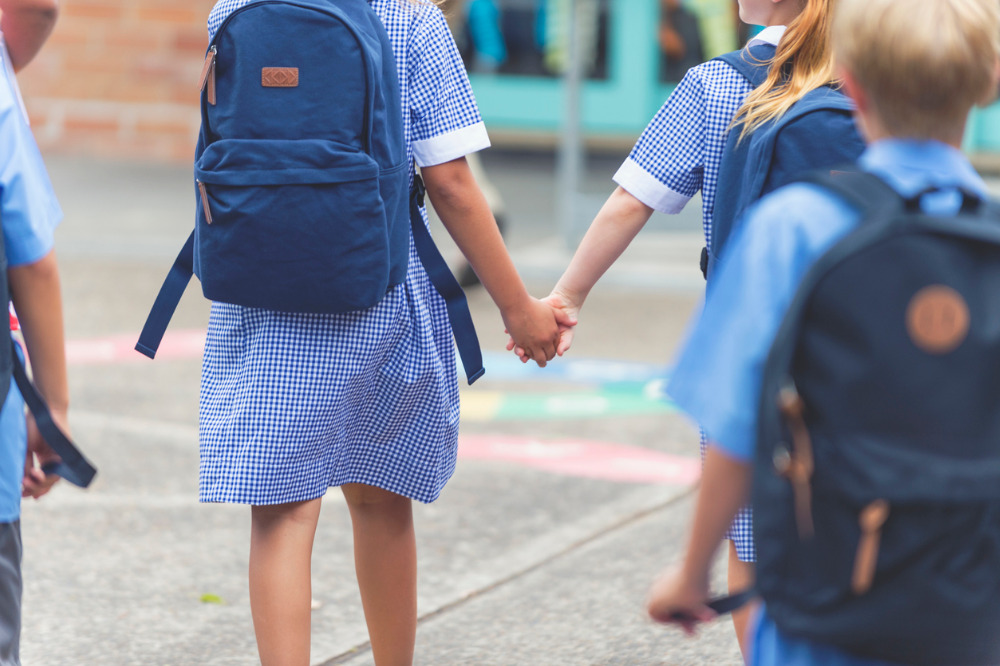
As the new term gets into full swing, schools are once again buzzing with activity as both staff and students return to face what is sure to be another big year for education.
While Term 1 can be a time of promise and new beginnings, the transition back to school can be a difficult one, especially for those who continue to struggle in the wake of the profound disruptions that have impacted the nation’s schools over the past three years.
Because of this, education and mental health experts are highlighting the need for schools take the time to address the needs of their students, both academically and emotionally, to ensure a successful and productive term for all.
One such expert is Rochelle Borton, a leading Australian education entrepreneur who founded EduInfluencers, an organisation that provides professional development programs, coaching and strategic consulting for educators, teams, schools and school leaders.
Borton’s humble beginnings began with just one four-part course that has since grown to include hundreds of courses, seminars, webinars, workshops and professional training used by schools across Australia.
Below, Borton draws on her experience to share some ways schools can support students as they adjust to Term 1 and embark on a new and dynamic school year.
TE: There’s no doubt most teachers and students are ecstatic when the school holidays arrive. Aside from the obvious benefits of taking a relaxing break, why else are holidays so important for students and staff?
School holidays are vital for the development of the skills and values that will enable children to be successful at school where learning isn’t something that only takes place within the four walls of a classroom. It is important to consider the school holiday period as a time to recharge, refresh and refocus and school breaks are often the only time when children can slow down. This also has effect on other members of the family seeing as the Summer holidays are the only time that parents can take a break from work and spend time as a whole family. It’s also a special time of year as the break coincides with many cultural celebrations which is another aspect of learning for children that extends beyond the classroom and their typical day-to-day.
TE: What are some strategies teachers can use to help children cope upon their return to school?
It is important to keep communication open and clear during school holidays as well as throughout the schooling term. Remind children about the positives of school and try to stay calm and reassuring as a parent. If they feel nervous or worried, help them understand this is normal and completely okay and that the support of yourself and teachers is always there. Creating a safe space at home significantly sets up children to respond much more positively to not only going to school but knowing what to expect and how to face any challenges. Predictable routines with regular mealtime and rest also helps to know what to expect and overall decreases stress in the household for all members (adults and children).
TE: How can teachers keep kids motivated through the school term?
Kids are most successful at school when emotions are balanced, and expectations are clear. It is crucial to keep momentum throughout the schooling term and ensure from a parent’s perspective to be curious, ask about their day so that kids always feel comfortable to talk and express their feelings. Start by asking your child, what are you looking forward to learning/doing at school tomorrow? Connecting with other parents who have children in the same program can help to provide information and keep things more comfortable. To maintain positive behaviours, it is thus important to provide opportunities for your child to play and relax at the end of the day. Similarly, to working adults, children spend their day at school learning and communicating with others so it is important that they too have the ability to participate in doing the things they enjoy out of school.
TE: What are some ways parents and teachers can help transition back to school
There is a range of activities and initiatives both parents and teachers can do to help with the transition of going back to school. It is important for teachers to be available and to establish connections between parents and the program – setting up times for physical meetings and getting to know each other, creating daily schedules for children and what to expect and gathering student changeover data from previous years/benchmark. Parents also play the same important role. Establishing routines such as sleep, breakfast and day plans through planners and calendars allows for a smoother and more calm transition where the child is equipped and aware of what each day looks like. Acknowledging children’s worries and coaching expectations and behaviours such as respect and empathy can also help with the emotional change of going back to school as well as most importantly being optimistic as a parent – every problem has a solution. Lastly, discussing roles like the school principal, CRT and teachers helps to keep communication open and comfortable between parent to child.


